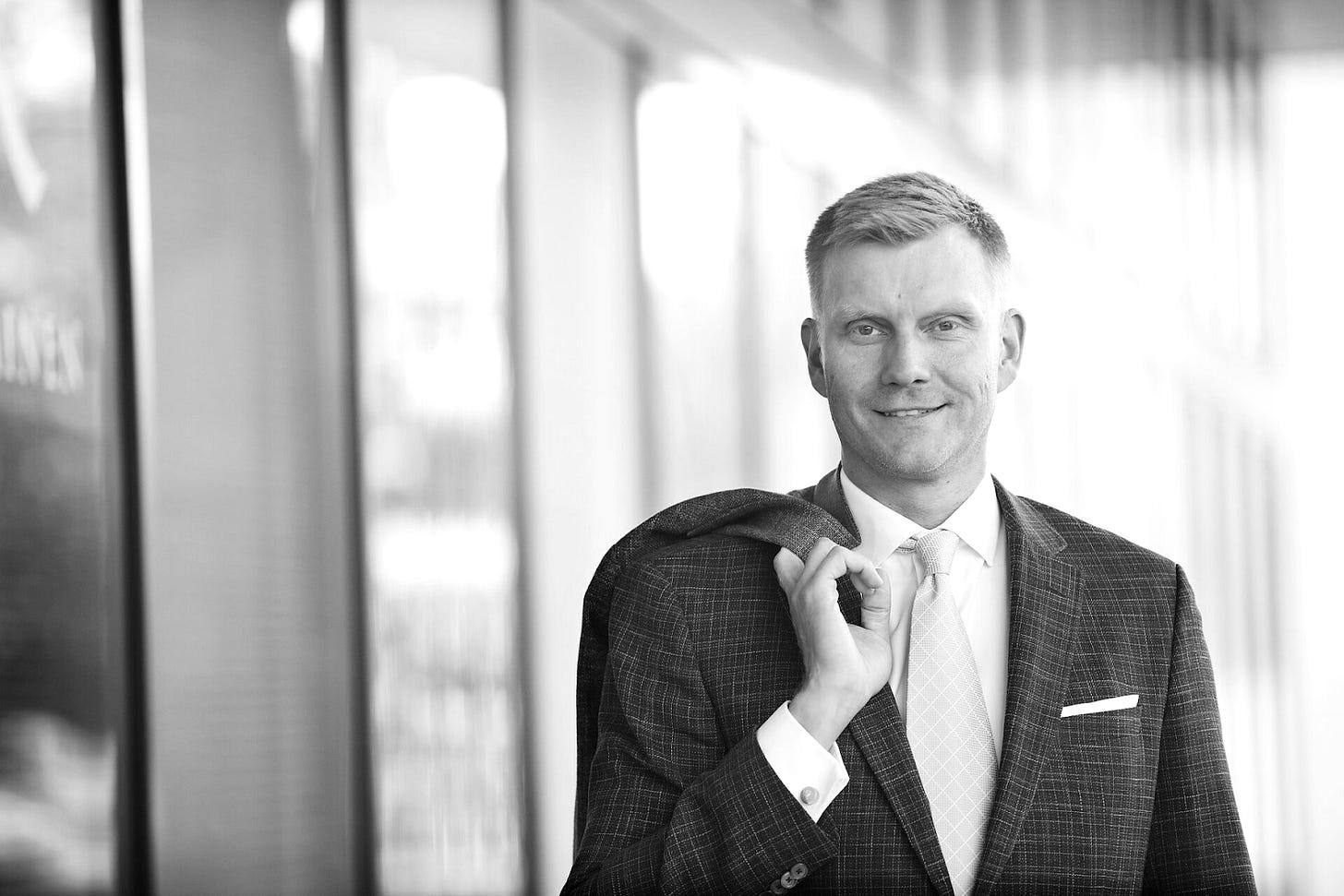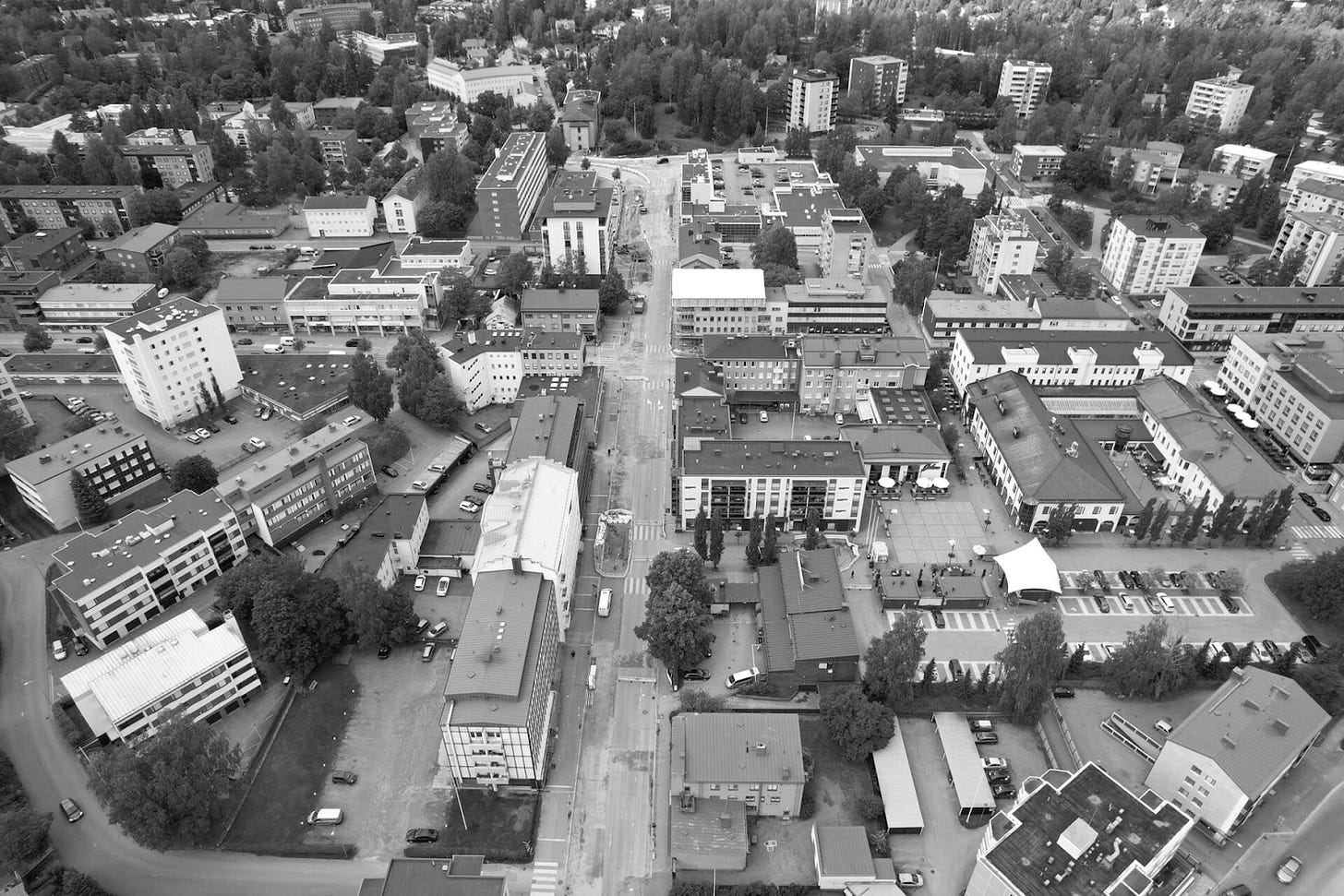A Deep Dive Into the Unique Finnish Defence Cluster Riihimäki
In the first of an occasional series on regional defence tech clusters, we look at a small Finnish town embracing open innovations and partnerships
Situated 69 kilometres north of Helsinki and 109 kilometres southeast of Tampere, Riihimäki was long defined by its railway junction connecting Finland’s major cities, historically all the way through to Saint Petersburg in Russia. But amid growing caution of its eastern neighbour, the small Finnish town drawing attention as a home to a fledgling defence cluster.
Jouni Eho, a retired professional basketball player who has been Riihimäki’s mayor since 2022, has driven this transformation against the backdrop of Russia’s war in Ukraine and Finland’s closer alignment with NATO.
His aim: to build a coordinated ecosystem that taps existing local strength — Riihimäki has been a garrison town since the beginning of the twentieth century, and is now home to strategic units such as the Electronic Warfare Training Centre, as well as defence companies, including significant rifle manufacturing and military maintenance facilities — but also draws in external talent to strengthen both Finland and NATO’s wider security capabilities.
‘It was quite obvious that one of the untapped resources and competence bases in the city is the strong Finnish Defence Forces presence,’ Eho told Resilience Media.
Still, a town of fewer than 30,000 inhabitants might not be the obvious place to shape NATO’s future.
‘I have always been at my strongest in the role of the underdog, which I think also well describes Riihimäki's position in the competition between Finnish cities,’ the mayor wrote in an address to citizens.
When it comes to defence, however, Riihimäki's approach could serve as a roadmap for other clusters. With many NATO allies still scrambling to meet the urgency of the moment, the Finnish town positions itself as an active partner to those looking to accelerate new defence and security solutions within the NATO alliance.
Riihimäki’s playbook
Tapping his experience in basketball, Eho has made building a defence cluster a team sport. His first step was to hire Ilkka Korkiamäki, a lieutenant general reserve officer, as an advisor; later. he brought on ‘innovation expert’ Teemu Seppälä. Eho’s team has already ‘scored.’ Earlier this month, drone company Stark acquired Pleno, a recent graduate of Riihimäki’s Define Accelerator.
Define is short for Defence Innovation Network Finland, the name that the city gave to its defence and security ecosystem, with the accelerator being one of its flagship activities. Operating in partnership with VC firm Redstone, the three-month program is open to defence and dual-use startups and SMEs from NATO countries.
While remote participation is possible, one of its success metrics will be to get more defence startups to operate out of Riihimäki.
According to Seppälä, five have relocated to the town, whose small size means it would hugely benefit from even a small number of high-grossing companies. Define Accelerator also plays a role in this pipeline: Pleno was German, with other participants coming from Estonia, France and the UK.
‘Our pitch is very clear: we are working on creating a strong connection with the end user by providing testing platforms with our Defence Forces,’ said Seppälä, who is both the city and Define’s tech and innovation director. ‘This is the thing that so far I have not heard that any other hub is doing; and this is also the core essence of Riihimäki.’
Define is financed by public institutions. Collectively, Riihimäki; the nearby city Hämeenlinna; and the regional council of Häme representing the EU where a significant part of the funding comes from the European Regional Development Fund (ERDF); and Define all belong to the European Network of Defence-Related Regions (ENDR). But its backers also include strategic industry players Millog and Beretta-owned riflemaker Sako. Collectively, these employ around 1,000 people in the area.
According to Eho, the fact that Sako recently co-hosted a hackathon is also tied to Riihimäki’s pitch to larger companies.
‘For the bigger OEMs, we provide access to the startup ecosystem from a one-stop shop that they are able to work with,’ he said. ‘Startups [participate in] their innovation challenges and create new products, so it works both ways.’
Häme University of Applied Sciences (HAMK), whose curriculum includes automation, robotics, and mechanical engineering, is another backer of Define, which also collaborates with a local vocational school and universities in other cities.
One goal is to connect talent to the industry, and vice-versa; and several joint initiatives are underway, including a generative AI lab and a 3D printing lab, Seppälä said.
‘We have started these close collaboration activities together with Defence Forces, the academy, students, investors, and companies. This has never happened this way before, even in Finland,’ he said.
But the fact that he added ‘even in Finland ‘ underscores that the country is an outlier, something he also accepts but believes is what makes it stronger.
‘The unfair advantage of Finland is our mandatory [national] service. And thanks to that, we have the biggest army in Europe, 960,000 people altogether in the reserves,’ said Seppälä, an officer in reserve himself. ‘It makes sense because we also have the longest border with Russia. But if you take into account that we are only 5.5 million people, it's totally different.’
Other EU members now plan to grow their armies and reserves, but having critical mass puts Finland ahead in a way that directly benefits Riihimäki.
The cyber conscripts, for instance, are selected from amongst ‘the most talented nerds from the Finnish population,’ Eho said. They are then trained locally by the C5 School, a division of the Finnish Defence Forces C5 Agency. (C5 stands for command, control, computers, communications, and cyber-defence.)
Meanwhile, the Electronic Warfare Training Centre, subordinate to the Armoured Brigade and also located in Riihimäki, trains conscripts for wartime tasks in an environment where jamming and countermeasures are the new normal.
Another unique aspect of Finland that benefits Riihimäki is having entities such as the FDFLOGCOM Centre for Military Medicine also conducting military medicine research.
‘In all other countries, these kinds of centres are mostly located in universities or public research institutions,’ Seppälä said.
Yet it’s not any one of these things alone that sets Riihimäki apart; it is how they combine.
‘The way that we are openly inviting everybody to come together and create these solutions together — this is something new,’ Seppälä said. ‘I would say that this is the innovation on a bigger scale: that we are able to collaborate.’
The networked future of defence
Define was open to international collaboration from the get-go. The first edition of the Define Accelerator received applications from 13 countries, and teams from Germany and Sweden joined this inaugural batch alongside Finnish startups such as Atle Defence Technologies, Rain and Tespack.
After a local prime, Patria, recently bought Nordic Drones, the mayor hopes that if and when more startups that come through Define get acquired, they remain European.
‘I think this is a natural cycle of the industry that you're going to see more and more bigger players also acquiring smaller players. And we would like to see this happen more on a European-wide scale, rather than the big Americans coming in acquiring European startups,’ Eho said.
While he also hopes that some will grow into standalone companies and create jobs in Riihimäki, he also knows they can only do that if they think beyond their own market.
‘Finland is too small in itself. …For example, a player like Beretta Defense Technologies is more eager to look at the Nordics as a whole,’ he said of the business unit to which Sako now belongs.
In the same vein, Define is now part of the Organisation for Defence Innovation in the Nordics (ODIN).
This association of public stakeholders, incubators, corporates, and academic partners from the New Nordics was established in February 2025 under the guidance of Margot Hatteland-McDonnell from Norwegian hub Kongsberg Innovation.
‘It makes perfect sense to us to have an umbrella rather than everyone doing it on their own,’ Eho said.
A major change that occurred during his tenure as mayor was Finland officially joining NATO in 2023.
This more than doubled NATO's pre-existing border with Russia, making Finland particularly strategic for the Alliance, whose Defence Innovation Accelerator for the North Atlantic (DIANA) will now have a program and two test centres in Otaniemi and Oulu.
This is also a reminder that Riihimäki has rivals. In 2023, Eho and Korkiamäki wrote that the city ‘would be an excellent place’ for a NATO Center of Excellence, but Oulu nourishes similar hopes. However, Eho doesn’t seem overly concerned with competition.
‘There's been an increased interest in what we are doing; but different initiatives based on different regional strengths are also emerging, which is quite natural. I think our timing was spot-on and we have the first-mover advantage. When you take the initiative, many times, when you take that initiator role, good things start to happen. The snowball starts rolling and more people are willing to join,’ the mayor said.
Startups keen to join the Define Accelerator will have to wait, though, as participants to its third batch have already been selected. The program will run from the end of August until Slush 2025, the Helsinki tech conference where they will be introduced to prospective partners, investors and buyers.




